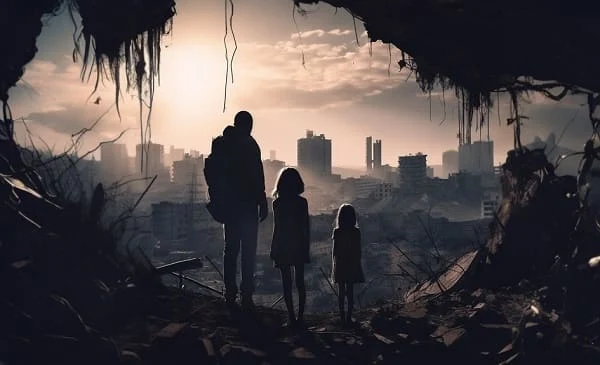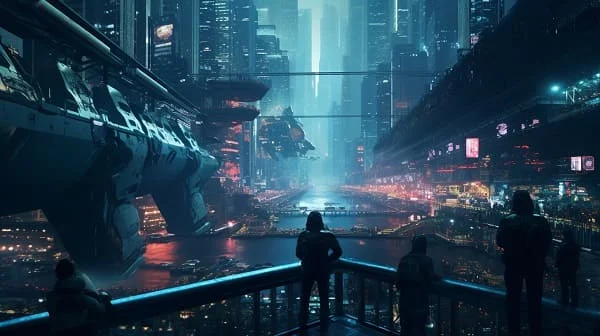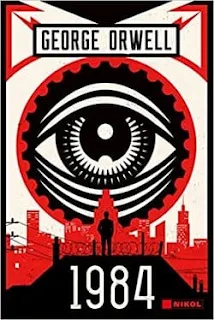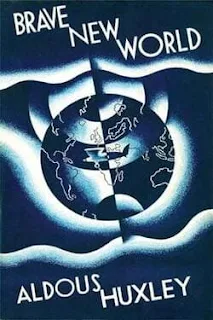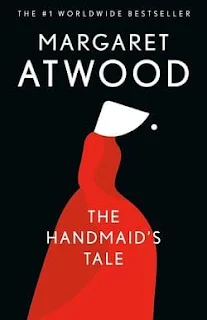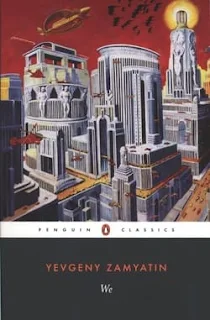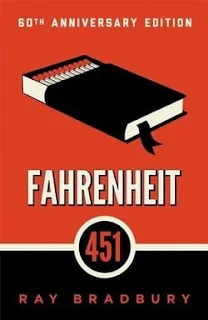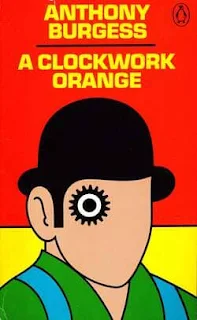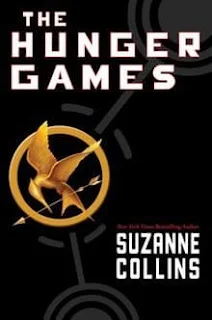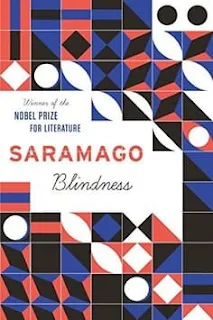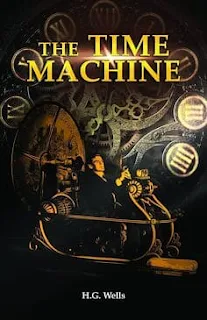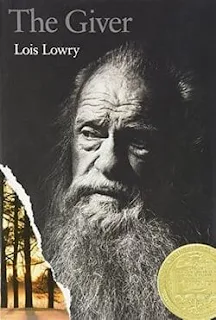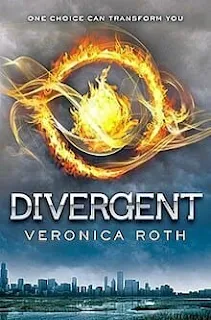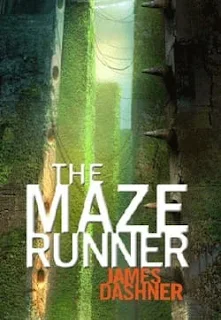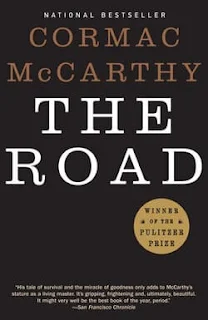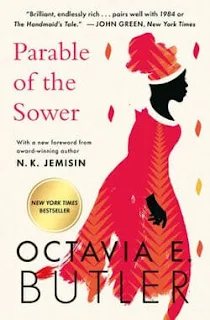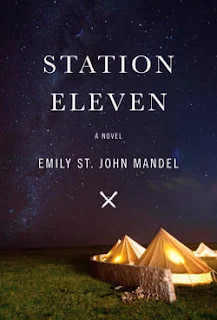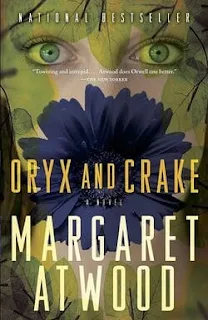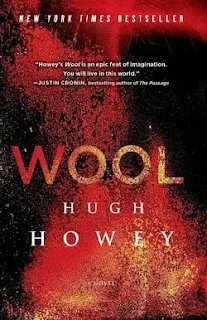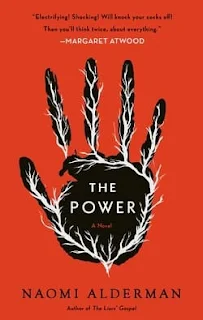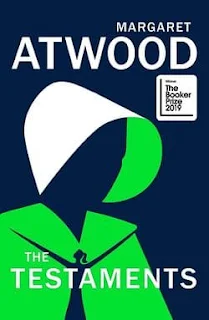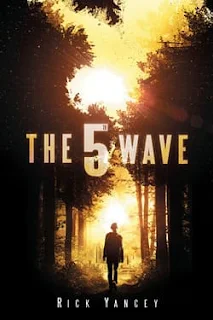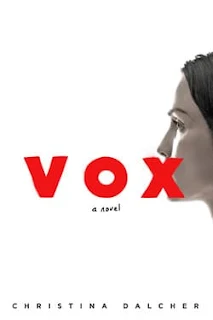29 Best Dystopian Books & Novels: Question Everything (2025 Updated)
Dystopian fiction is a genre of speculative fiction that imagines a negative future. These books often explore themes of control, oppression, and the dangers of technology. They can be thought-provoking and disturbing, but they can also be important tools for understanding the world we live in.
In this blog post, I'm going to share my picks for the 20 best dystopian books of all time. These books are all classics of the genre, and they have been praised for their thought-provoking plots, their complex characters, and their insights into the human condition.
Whether you're a fan of dystopian fiction or you're just looking for a good read, these books are sure to keep you entertained and engaged. So read on and discover the dark side of the future!
The Dystopian Canon: 29 Must-Read Books That Will Change the Way You See the World
Before delving into our compilation of the 20 best dystopian books, let's take a closer look at what exactly constitutes a dystopia and the messages it conveys to its readers.
What is dystopia?
A dystopia is a community or society that is undesirable or frightening. It is often characterized by totalitarianism, environmental disaster, or other severe problems. The term is derived from the Greek words "dys" (bad) and "topos" (place).
Dystopia is the opposite of utopia. It refers to an imagined or hypothetical society or community that is characterized by undesirable, oppressive, and often nightmarish qualities. In a dystopian setting, things have gone wrong in society, resulting in conditions that are often marked by totalitarianism, surveillance, environmental degradation, social injustice, and loss of individual freedoms.
Why Dystopian literature is important?
Dystopian literature and narratives explore the darker aspects of human nature and the potential consequences of unchecked power, societal decay, and technological advancements gone awry. These works often serve as cautionary tales, urging readers to reflect on the current state of society and the potential paths it could take if certain issues are not addressed.
Well-known examples of dystopian literature include George Orwell's "1984," Aldous Huxley's "Brave New World," and Margaret Atwood's "The Handmaid's Tale." These works highlight the dangers of oppressive governments, loss of privacy, and the dehumanizing effects of a society that prioritizes control over individuality and freedom.
Related post: 20 of the Best Post-Apocalyptic Movies of All Time
Dystopian literature is a genre of fiction that explores the negative aspects of society. It often features themes of oppression, violence, and environmental destruction.
Dystopian literature can be a powerful tool for social commentary. It can help us to think critically about the world we live in and to imagine alternative possibilities. It can also be a source of hope, showing us that even in the darkest of times, there is always the potential for change.
Here are some of the common features of dystopias:
- Totalitarianism: A totalitarian government controls every aspect of people's lives, from their thoughts to their actions.
- Environmental disaster: The environment is destroyed or polluted, making it difficult or impossible for people to live.
- Poverty and inequality: The gap between the rich and the poor is vast, and the majority of people live in poverty.
- War and violence: There is constant war or violence, and people live in fear for their lives.
- Loss of freedom: People have no freedom of speech, assembly, or movement.
- Loss of individuality: People are forced to conform to the norms of society and lose their sense of individuality.
Dystopian literature can be a challenging and disturbing read, but it can also be a valuable tool for understanding the world we live in and for imagining alternative possibilities.
2025 Update: This blog post has been significantly expanded and refreshed! We've added nine compelling new dystopian titles to our already extensive list, bringing the total to 29 must-read books that explore the dark side of humanity and challenge our perceptions of the future. Dive in to discover chilling tales of societal collapse, technological control, and the enduring power of the human spirit. Whether you're a seasoned dystopian enthusiast or just beginning your exploration of this genre, you're sure to find something to captivate and provoke your thoughts.
1. 1984 by George Orwell (1949)
1984 is a dystopian novel by George Orwell that describes a world where the government controls every aspect of people's lives. The protagonist, Winston Smith, works for the Thought Police, but he begins to question the government and eventually joins a resistance movement. The novel is a warning about the dangers of totalitarianism and the importance of individual freedom.
1984 is a classic dystopian novel that has been praised for its insights into the dangers of totalitarianism.
2. Brave New World by Aldous Huxley (1932)
Brave New World is a dystopian novel by Aldous Huxley that describes a world where people are conditioned to be happy and content. The novel is set in a future where society is divided into castes, and people are genetically engineered and conditioned from birth to fulfill their assigned roles. The novel is a warning about the dangers of technology and the importance of individuality.
Brave New World is a classic dystopian novel that has been praised for its insights into the dangers of technology and the importance of individuality.
3. The Handmaid's Tale by Margaret Atwood (1985)
The Handmaid's Tale is a dystopian novel by Margaret Atwood that describes a world where women are forced to be handmaids, or breeders, for the ruling class. The novel is set in a future where environmental pollution has caused a sharp decline in fertility, and the few remaining fertile women are forced to live in a totalitarian state where they are treated as property of the state. The novel is a warning about the dangers of a patriarchal society and the importance of women's rights.
The Handmaid's Tale is a classic dystopian novel that has been praised for its insights into the dangers of a patriarchal society and the importance of women's rights.
The novel has been adapted into a television series of the same name, which premiered on Hulu in 2017. The series has been praised for its faithfulness to the novel and for its timely exploration of the themes of women's rights and reproductive freedom.
4. We by Yevgeny Zamyatin (1924)
We is a dystopian novel about a future society where people are assigned numbers instead of names and are constantly monitored by the government. The protagonist, D-503, is a mathematician who works for the government. He is initially content with his life in this society, but he begins to question the government when he meets I-330, a woman who is secretly opposed to the government.
We is a classic dystopian novel that has been praised for its insights into the dangers of totalitarianism.
5. Fahrenheit 451 by Ray Bradbury (1953)
Fahrenheit 451 is a dystopian novel about a future society where books are banned and burned by firemen. The protagonist, Guy Montag, is a fireman who begins to question the society when he meets a young woman named Clarisse McClellan. Clarisse introduces Montag to the world of books and ideas, and he begins to see the dangers of the society he lives in.
Fahrenheit 451 is a classic dystopian novel that has been praised for its insights into the dangers of censorship and the importance of freedom of thought.
The title of the novel refers to the temperature at which paper burns. The novel suggests that books are dangerous because they can contain ideas that challenge the status quo. The firemen in the novel are not only responsible for burning books, but also for destroying any evidence that books ever existed.
The novel has been interpreted in many different ways. Some critics have seen it as a warning about the dangers of censorship, while others have seen it as a satire of modern society. Whatever interpretation one takes, Fahrenheit 451 is a powerful and thought-provoking novel that continues to be relevant today.
6. A Clockwork Orange by Anthony Burgess (1962)
A Clockwork Orange is a dystopian novel about a young man named Alex who is a member of a gang of "droogs" who engage in violence and crime. Alex is arrested and undergoes a Ludovico Technique, a form of aversion therapy that makes him physically ill when he experiences violence or aggression. The novel explores the question of whether it is possible to create a perfect society by controlling people's thoughts and emotions.
A Clockwork Orange is a classic dystopian novel that has been praised for its insights into the nature of violence and the dangers of totalitarianism.
The novel has been adapted into a film of the same name, which was directed by Stanley Kubrick in 1971. The film was controversial, but it is considered to be a classic of dystopian cinema.
7. Never Let Me Go by Kazuo Ishiguro (2005)
Never Let Me Go is a dystopian novel about a group of clones who are raised to be organ donors. The novel is set in a seemingly idyllic English boarding school, but the clones eventually realize that they are being bred to be harvested for their organs. The novel explores the question of what it means to be human when your life is predetermined.
Never Let Me Go is a thought-provoking and heartbreaking novel that has been praised for its insights into the nature of identity and the importance of love and friendship. The novel is told from the perspective of Kathy, one of the clones. Kathy recounts her life at Hailsham, the boarding school where she and her friends are raised, and her subsequent experiences as a donor. The novel is beautifully written and it explores complex themes such as identity, mortality, and the nature of love.
Never Let Me Go was adapted into a film of the same name in 2010. The film was directed by Mark Romanek and it starred Carey Mulligan, Andrew Garfield, and Keira Knightley. The film was a critical and commercial success.
8. The Hunger Games by Suzanne Collins (2008)
The Hunger Games is a dystopian novel about a young woman named Katniss Everdeen who volunteers to take her younger sister's place in a televised fight to the death. The novel is set in a future where Panem, a dystopian nation, forces children to fight to the death in an annual televised event called the Hunger Games.
The Hunger Games is a popular dystopian novel that has been praised for its suspenseful plot, its strong female protagonist, and its exploration of important themes.
The novel is the first in a trilogy that also includes Catching Fire (2009) and Mockingjay (2010). The trilogy has been adapted into a series of films, which have been successful at the box office.
The Hunger Games is a powerful novel that has resonated with readers around the world. It is a reminder of the importance of fighting for what is right, even in the face of great odds.
9. Blindness by José Saramago (1995)
Blindness is a dystopian novel by José Saramago that explores a world where a sudden and inexplicable epidemic of blindness sweeps across a city. The novel follows a small group of individuals who are spared the initial wave of blindness and find themselves struggling to survive in a society that has descended into chaos and barbarity.
Blindness is a chilling exploration of human nature, social breakdown, and the fragility of civilization. It's a thought-provoking commentary on the importance of sight, both physical and metaphorical, and the responsibility we have to one another.
10. Brave New World Revisited by Aldous Huxley (1958)
Brave New World Revisited is a non-fiction companion piece to Huxley's classic dystopian novel, Brave New World. In this work, Huxley analyzes the ways in which modern society is mirroring the dystopian predictions of his earlier novel. He explores themes of overpopulation, propaganda, and the increasing control of technology, offering a sobering reflection on the potential for a future where individual freedom is sacrificed for comfort and stability. It serves as a stark warning about the subtle erosion of liberty and the importance of vigilance in safeguarding our autonomy.
11. The Time Machine by H.G. Wells (1895)
The Time Machine is a science fiction novel by H.G. Wells that tells the story of a Time Traveller who journeys far into the future. He discovers a world inhabited by two distinct human species: the childlike Eloi and the subterranean Morlocks. The novel is a social commentary on class division and the potential consequences of unchecked technological advancement.
The Time Machine is a classic dystopian novel that explores themes of evolution, social inequality, and the ultimate fate of humanity.
12. Metro 2033 by Dmitry Glukhovsky (2005)
Metro 2033 is a post-apocalyptic dystopian novel by Dmitry Glukhovsky set in the Moscow Metro after a nuclear war. The story follows Artyom, a young man who must venture beyond the confines of his metro station to save his community from a growing threat. The novel depicts a claustrophobic and dangerous world where survivors struggle against mutated creatures and the remnants of a shattered society.
Metro 2033 is a gripping tale of survival, hope, and the human spirit in the face of overwhelming adversity.
13. Lord of the Flies by William Golding (1954)
Lord of the Flies is a dystopian novel by William Golding that tells the story of a group of British schoolboys who are stranded on a deserted island after their plane crashes. As they struggle to create a society, their initial attempts at civilization descend into savagery and violence. The novel is a powerful allegory about the inherent darkness of human nature and the fragility of social order.
Lord of the Flies is a chilling exploration of the loss of innocence and the descent into barbarism.
14. Do Androids Dream of Electric Sheep? by Philip K. Dick (1968)
Do Androids Dream of Electric Sheep? is a science fiction novel by Philip K. Dick set in a dystopian future where androids, virtually indistinguishable from humans, live among the population. The story follows Rick Deckard, a bounty hunter tasked with "retiring" rogue androids. The novel explores complex questions about identity, empathy, and what it means to be human.
Do Androids Dream of Electric Sheep? is a thought-provoking examination of the blurring lines between humans and machines.
15. The Stand by Stephen King (1978)
The Stand is a post-apocalyptic dystopian novel by Stephen King that depicts the aftermath of a devastating superflu pandemic that wipes out most of the world's population. The novel follows a group of survivors who are drawn into a battle between good and evil, represented by the charismatic leader Randall Flagg and the spiritual figure Mother Abagail.
The Stand is an epic tale of survival, faith, and the struggle to rebuild civilization in a world ravaged by disease and conflict.
16. Animal Farm by George Orwell (1949)
Animal Farm is a satirical allegorical novella by George Orwell that tells the story of a group of farm animals who rebel against their human farmer and establish their own society. However, the animals' revolution quickly devolves into a totalitarian regime ruled by the pigs. Animal Farm is a biting critique of Stalinist Russia and a timeless warning about the corrupting nature of power. It's a sharp and insightful exploration of political manipulation, propaganda, and the betrayal of revolutionary ideals.
17. The Dispossessed by Ursula K. Le Guin (1974)
The Dispossessed is a science fiction novel by Ursula K. Le Guin set on two contrasting planets: Anarres, a barren anarchist society, and Urras, a wealthy capitalist world. The story follows Shevek, a brilliant physicist from Anarres who travels to Urras in search of knowledge and connection. The novel explores themes of social and political philosophy, contrasting different models of society and examining the tension between individual freedom and social responsibility.
The Dispossessed is a complex and nuanced exploration of utopian ideals and the challenges of creating a just and equitable society.
18. The Giver by Lois Lowry (1993)
The Giver is a dystopian novel about a young boy named Jonas who lives in a seemingly perfect world where everyone is assigned their role at birth and emotions are suppressed. Jonas is selected to be the Receiver of Memory, the only person in the community who knows the truth about the world before it was made perfect.
The Giver is a classic dystopian novel that has been praised for its insights into the dangers of conformity and the importance of individuality.
The novel is set in a community where everything is decided by the Elders. There is no war, no pain, and no suffering. But there is also no joy, no love, and no excitement. Jonas is chosen to be the Receiver of Memory, which means that he will be given all the memories of the past, both good and bad. This knowledge changes Jonas's view of the world and he begins to question everything he has ever been taught.
The Giver is a powerful novel that has resonated with readers around the world. It is a reminder of the importance of individuality and the dangers of conformity.
19. Divergent by Veronica Roth (2011)
Divergent is a dystopian novel about a young woman named Beatrice Prior who must choose her faction, or social group, at the age of 16. Beatrice chooses Dauntless, the faction of courage, but she discovers that she is Divergent, which means she does not fit neatly into any one faction.
Divergent is a popular dystopian novel that has been praised for its strong female protagonist, its suspenseful plot, and its exploration of important themes.
The novel is the first in a trilogy that also includes Insurgent (2012) and Allegiant (2013). The trilogy has been adapted into a series of films, which have been successful at the box office.
Divergent is a powerful novel that has resonated with readers around the world. It is a reminder of the importance of choosing your own path in life, even if it means going against the grain.
20. Maze Runner by James Dashner (2009)
The Maze Runner is a dystopian science fiction novel about a young man named Thomas who wakes up in a giant maze with a group of other boys. The boys must work together to find their way out of the maze, but they soon discover that the maze is not what it seems.
The Maze Runner is a popular dystopian novel that has been praised for its suspenseful plot, its strong characters, and its exploration of important themes.
The novel is the first in a trilogy that also includes The Scorch Trials (2010) and The Death Cure (2011). The trilogy has been adapted into a series of films, which have been successful at the box office.
The Maze Runner is a powerful novel that has resonated with readers around the world. It is a reminder of the importance of teamwork and the power of hope.
21. The Road by Cormac McCarthy (2006)
The Road is a post-apocalyptic novel with dystopian elements about a father and son who are trying to survive in a world that has been ravaged by an environmental disaster. The novel is set in a future where the sun is blocked out by ash and dust, and the ground is covered in snow and ice. The father and son must travel south in search of a warmer climate, but they are constantly in danger from the few remaining humans who have become violent and cannibalistic.
The Road is a powerful novel that has been praised for its unflinching portrayal of the human condition in a post-apocalyptic world.
The novel is written in a spare and minimalist style, which reflects the bleakness of the world that it depicts. The father and son are never named, and they are simply referred to as "the man" and "the boy." This lack of names helps to create a sense of universality, as the characters could be anyone in this world.
The Road is a difficult novel to read, but it is also a rewarding one. It is a reminder of the importance of hope and love, even in the darkest of times.
22. Parable of the Sower by Octavia E. Butler (1993)
Parable of the Sower is a dystopian novel about a young woman named Lauren Olamina who is forced to flee her home in Los Angeles after a series of natural disasters and social unrest. Lauren is a hyperempath, which means that she can feel the pain and suffering of others. This makes her a target in the increasingly violent world, but it also gives her a unique perspective on the human condition.
Parable of the Sower is a powerful novel that has been praised for its insights into the dangers of environmental destruction and social inequality.
The novel is the first in a trilogy that also includes Parable of the Talents (1998) and Parable of the Trickster (2000). Parable of the Sower is a thought-provoking novel that challenges the reader to think about the future of our own world.
The novel is written in a first-person perspective, which allows the reader to experience the world through Lauren's eyes. Lauren's hyperempathy makes her a sympathetic and relatable character, and her journey is both heartbreaking and inspiring.
23. Station Eleven by Emily St. John Mandel (2014)
Station Eleven is a post-apocalyptic novel with dystopian elements that follows a group of survivors in the years after a flu pandemic wipes out most of the world's population. The novel is set in a variety of locations, including a traveling Shakespeare troupe, a post-apocalyptic amusement park, and a refugee camp.
Station Eleven is a powerful novel that has been praised for its insights into the human condition in a post-apocalyptic world.
The novel is told from the perspectives of several different characters, which allows the reader to see the world from different angles. The characters are all well-developed and relatable, and their stories are both heartbreaking and inspiring.
Station Eleven is a thought-provoking novel that challenges the reader to think about the future of our own world. The novel has been adapted into a miniseries by HBO Max, which premiered in December 2021.
24. Oryx and Crake by Margaret Atwood (2003)
Oryx and Crake is a dystopian novel about a young man named Snowman who wakes up in a post-apocalyptic world. He must piece together his past and figure out what happened to the world he once knew. The novel is set in a world where society has been destroyed by a genetically engineered virus, and the few remaining humans are struggling to survive.
Oryx and Crake is a powerful novel that has been praised for its insights into the dangers of scientific hubris and the importance of environmentalism.
The novel is the first in a trilogy that also includes The Year of the Flood (2009) and MaddAddam (2013). Oryx and Crake is a thought-provoking novel that challenges the reader to think about the future of our own world.
The novel is told from the perspectives of two characters, Snowman and Oryx. Snowman is a former scientist who is trying to survive in the post-apocalyptic world. Oryx is a woman who Snowman loved and who was killed by the virus. The novel is a mix of past and present, as Snowman tries to remember his past and figure out what happened to Oryx.
25. Wool by Hugh Howey (2011)
Wool is a dystopian novel about a group of people who live in a silo, a giant underground structure that is designed to protect them from the contaminated surface world. The novel is told from the perspective of a man named Thomas who is sent to the silo to fix a problem with the air scrubbers.
Wool is a popular dystopian novel that has been praised for its suspenseful plot, its well-developed characters, and its exploration of important themes.
The novel is the first in a series of five books that also includes Shift (2012), Dust (2013), Mist (2014), and Pillars (2015). Wool is a thought-provoking novel that challenges the reader to think about the nature of reality and the dangers of conformity.
The novel is told in the form of a series of journal entries, which gives the reader a first-hand account of Thomas's experiences. The journal entries are also a way for Thomas to process what he is learning about the silo and the world outside.
26. The Power by Naomi Alderman (2016)
The Power is a feminist dystopian novel about a world where teenage girls suddenly develop the ability to release electrical shocks from their fingertips. The novel explores the ways in which this power would change society, both for good and for bad.
The Power is a powerful novel that has been praised for its originality, its suspenseful plot, and its exploration of important themes.
The novel is told from the perspectives of several different characters, including a young girl named Roxy who is one of the first to develop the power, a politician named Tunde who is trying to understand the power and its implications, and a religious leader named Margot who believes that the power is a sign of the end times.
The Power is a thought-provoking novel that challenges the reader to think about the ways in which power can be used for good or for evil.
27. The Testaments by Margaret Atwood (2019)
The Testaments is a sequel to The Handmaid's Tale (1985) that tells the story of Gilead from the perspectives of three women: Agnes, a young woman who is raised in Gilead; Daisy, a young woman who escapes Gilead; and Aunt Lydia, a woman who was once a Handmaid and is now a powerful figure in Gilead.
The Testaments is a powerful novel that has been praised for its suspenseful plot, its well-developed characters, and its exploration of important themes. The Testaments is a thought-provoking novel that challenges the reader to think about the future of Gilead and the possibilities for resistance.
The novel is narrated by three different women: Agnes, Daisy, and Aunt Lydia. Agnes is a young woman who is raised in Gilead and is forced to become a Handmaid. Daisy is a young woman who escapes Gilead and joins a resistance movement. Aunt Lydia is a woman who was once a Handmaid and is now a powerful figure in Gilead.
28. The 5th Wave by Rick Yancey (2013)
The 5th Wave is a dystopian science fiction novel about a young woman named Cassie Sullivan who is trying to survive in a world that has been devastated by a series of alien invasions. The novel is the first in a trilogy that also includes The Infinite Sea (2014) and The Last Star (2016).
The 5th Wave is a popular dystopian novel that has been praised for its suspenseful plot, its strong female protagonist, and its exploration of important themes.
The novel is told from the perspective of Cassie Sullivan, a young woman who is trying to survive in a world that has been ravaged by four waves of alien attacks. The first wave was an EMP that knocked out all power and technology. The second wave was a tsunami that killed millions. The third wave was a virus that killed most of the remaining survivors. The fourth wave was a series of coordinated attacks by child soldiers.
Cassie is determined to find her younger brother, Sam, who was separated from her during the fourth wave. She joins a group of other survivors and together they try to find a way to fight back against the aliens.
The 5th Wave is a thought-provoking novel that challenges the reader to think about the nature of good and evil and the importance of hope.
29. Vox by Christina Dalcher (2018)
Vox is a dystopian novel set in a future where women are only allowed to speak 100 words a day. The novel follows the story of Dr. Jean McClellan, a linguistics professor who is fighting against the government's restrictions on women's speech.
Vox is a powerful novel that has been praised for its suspenseful plot, its well-developed characters, and its exploration of important themes. Vox is a thought-provoking novel that challenges the reader to think about the ways in which women are silenced in our own world.
The novel is told from the perspective of Dr. Jean McClellan, a linguistics professor who is married to a powerful government official. Jean is one of the few women who have been allowed to keep their jobs, but she is constantly monitored and her words are restricted. When she learns that her daughter is being forced to undergo a procedure that will silence her, Jean decides to take action.

